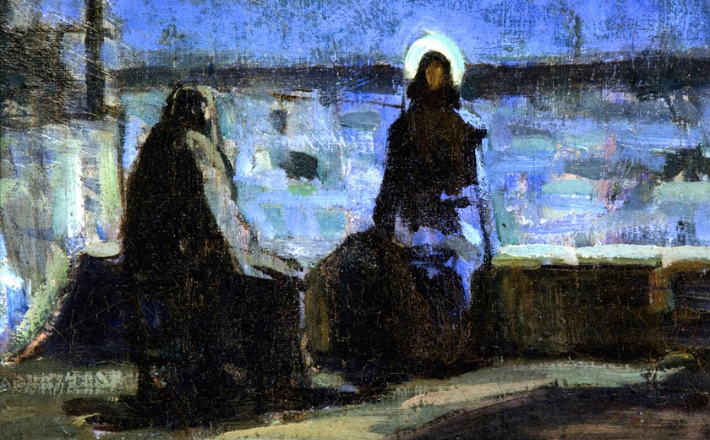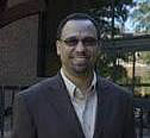Commentary on Ephesians 2:1-10
As is common, the lectionary today sections off a shorter passage from within its larger context. What immediately precedes chapter 2 is most pertinent for our passage at hand. God raised Christ and “seated him” at God’s side (1:20), a symbolism that expresses the power God has granted to Christ (1:21). God subjected everything to Christ’s authority—including the ekklesia (see also 5:23)—for the sake of the ekklesia (1:22–23). As Christ’s “body” in the world, the ekklesia is the “fullness of him” (1:23). In that spirit, chapter 2 begins.
The movement from “death” (2:1–3) to “life” (2:6–10) makes this passage attractive during the season of Lent, as Christ-followers anticipate the resurrection. Just as this disciple of Paul emphasizes a nonhuman force that disrupted the human condition (“the ruler of the power of the world,” 2:2), so does the author focus attention on God’s activity—through Christ—to alter the human condition from death to life (2:5). The whole passage builds toward 2:10: “We are God’s accomplishment” (Common English Bible)—a way of life that includes purposeful, human activity.
A common image among early Christ-followers is the idea that Christ “sits” (or is seated) next to God in the heavens (see Mark 16:19; Acts 7:55; Romans 8:34; Colossians 3:1; Ephesians 1:20; Hebrews 10:12; 1 Peter 3:22). The earliest reference to this idea seems to be in one of Paul’s letters, a common confession acknowledging Christ’s presence at God’s “right hand” (without claiming how Christ arrived at this position), since Paul’s focus is more on the activity of Christ’s “intercession” (8:34; see also Hebrews 8:1–2).
In the Gospels, Jesus testifies to the vindication of the “Son of Man,” who is seated at God’s right side (ready to act = “coming”; Matthew 26:64//Luke 22:69). In Hebrews, Christ takes a more active role in this arrangement, in passages in which he “sat down” (1:3; 10:12)—following his purification of sins—and “takes his seat” (12:2) at God’s right side. In 1 Peter, Christ also more actively takes his position, although it is unclear whether he sits or stands on God’s right (3:22). In Acts, the speeches of Peter and Stephen contain references to this image: Luke’s Peter testifies to the act of Christ’s “exaltation” symbolized in this position next to God (Acts 2:32–35), citing from the Psalms; Luke’s Stephen has a vision of Christ “standing” at God’s side (Acts 7:55).
In Mark’s (later) longer ending, Jesus was (passively) “taken up into heaven” and (actively) “sat down” at God’s side (Mark 16:19). The general function of this image—Christ seated at God’s side—within the early Christ-following communities served to emphasize the authority Christ had in relationship to God.
There is a slight shift in function in two letters presumably written by disciples of Paul. In Colossians, the emphasis shifts from Christ’s authority (in the tradition) to what Christ-followers should “seek” (or gain) from the arrangement of Christ’s presence “seated” at God’s right side (Colossians 3:1). In the lectionary passage, similar to Colossians, Ephesians lays out the possibility of Christ-followers receiving a position alongside Christ (Ephesians 2:6–7). To be “seated” in the heavenly places signifies a “future” hope in the present order; that is, Christ-followers ought to be less fearful of the forces that rule the present order because of God’s work in Christ and their placement in the sphere of God/Christ.
In addition to what the Ephesians author adds to the early Christian tradition (see above), this document emphasizes attention to the heavenly sphere as a necessary activity for Christ-followers as one way to shape their earthly perspective. In this short document, the “heavenly places,” or “heavenlies” (Greek epourania), is always in the plural. Early in the sermon-letter, the author acknowledges the spiritual blessings in the epourania for Christ-followers (Ephesians 1:3). It is in the epourania where God has seated Christ (1:20).
Moving beyond others in the early Christian tradition, God has also seated “us” with Christ in the epourania (2:6). God’s wisdom is made known—through the ekklesia—to the rulers and authorities in the epourania (3:10). Related to 3:10 is the spiritual conflict that happens in the epourania—“against the spiritual forces of evil” (6:12). Again, as mentioned earlier, the Pauline author desires to encourage Christ-followers to be less fearful of the “authorities” that rule the present order, because of God’s work in Christ in the “heavenly places”—an activity that should empower a collective known as the ekklesia to act with courage and hope.
Not all in the contemporary Christian orbit continue to share this view of how the world works. Many of us see a more “natural” order to the world than our ancient forebears were able to envision (for good reason). Most ancients of various religious persuasions thought similarly, even if they would argue about the particulars.
The Pauline author clearly thinks of the world as one in which external (spiritual) forces determine the activities of the human elements on the planet, and the (spiritual) conflicts in life occur due to forces beyond what we can see: “for our struggle is not against blood and flesh but against the rulers, against the authorities, against the cosmic powers of this present darkness, against the spiritual forces of evil in the heavenly places” (6:12).
As the old adage goes, a person can become too heavenly minded to be any earthly good. Thankfully, the biblical author did not leave us lost in the heavenly regions of the world. Even as our expectations build toward the significance of the resurrection during the season of Lent, so the passage moves from the regions above to recognize that Christ-followers have been created for the purpose of doing good in the world (2:10).
May the attention we give to ourselves during the season of Lent recognize God’s power granted to us to do good for those we love and for those strangers we do not yet know.


March 10, 2024